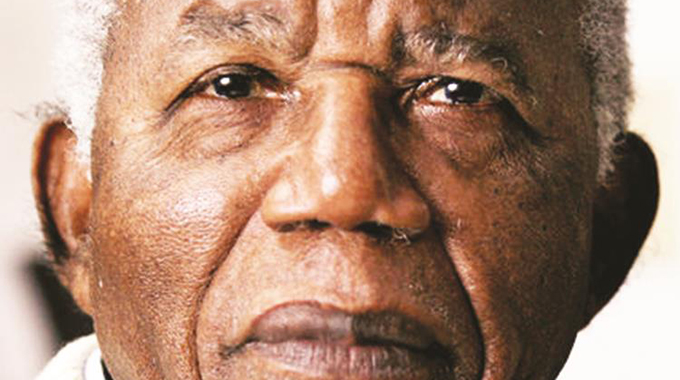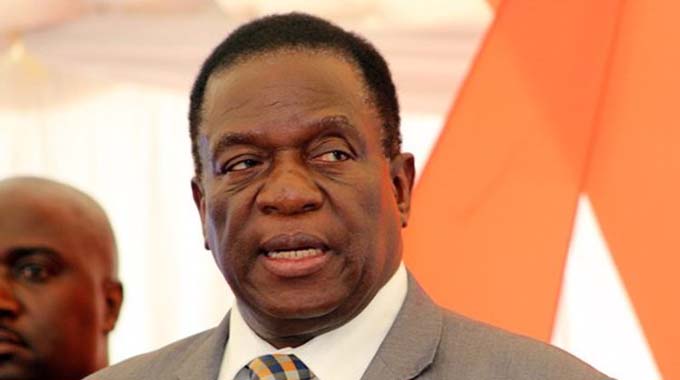Achebe: Metaphor of the 3 green bottles

Elliot Ziwira @ The Book Store
“In the beginning Power rampaged through our world naked. So the Almighty, looking at his creation through the round undying eye of the Sun, saw and pondered and finally decided to send his daughter, Idemili, to bear witness to the moral nature of authority by wrapping around Power’s rude waist a loincloth of peace and modesty,” writes Chinua Achebe in “Anthills of the Savannah” (1987).
Bringing to a cirque the insatiable and morally bankrupt nature of power, drawn from folklore, Achebe expresses his disgust through the priestess Idemili, who purveys her “contempt for man’s unquenchable thirst to seat in authority over his fellows”.
Through Idemili, Achebe highlights how power, if unchecked, leads to moral bankruptcy, arrogance, deceit and brutality, as the individual is only interested in seating in authority “over his fellows”, paying scant attention to the consequences of his actions.
Power needs to be clothed in regalia that tempers it and makes it human. In the fictional state of Kangan, which can be read as Nigeria, one wonders then whether these robes can be found anywhere in the military, or in its overthrow of a civilian government, which ushers in a new dispensation, but one which inherits the structures of the old, which makes it vulnerable to what Sam’s and other governments before, found to be flawed.
Marx argues that the dialectical struggle between classes has nothing to do with race, ethnicity or religion, but has everything to do with power for material gain.
Power, according to Marx, is always in limited supply, thus, it is a preserve for a single person or a group at a time. The tussle for power, which is always between the rich and the poor, is as permanent as power is impermanent.
It is interesting to note, therefore, that the limited supply of power and the fact that it can be co-held prods the need to probe the pluralistic and elitist nature of power, through unravelling the metaphors Achebe uses in “Anthills of the Savannah”, the most prominent of which is the metaphor of the three green bottles.
This metaphor derives from three friends – Sam, Ikem and Chris – who are connected since childhood and it clearly reveals concerns and complexes around power.
As the novel opens, the First Witness, Chris traces the trinity to Lord Lugard College, where the trio’s friendship of 25 years was cemented. Fancying themselves the three bottles “up there on the wall hanging by a hair’s breadth, yet looking down pompously on the world”, the tragedy of “the trinity who thought they owned Kangan” is not only manifest in their conceit, but their clinging to the empire and what it stands for, as embodied in Lord Lugard College.
Good governance to them is seen through the eyes of the Westerner, a bane that Mbembe (2001) and Fanon (1967) blame on the subtle nature of colonialism.
The trinity of the three green bottles, which Akwanya (2013) calls the metaphor of solidarity, is lambasted by Beatrice, who in a way is Idemili’s replica, thus: “The story of this country, as far as you are concerned, is the story of the three of you.”
The trio’s conceit is in thinking that it is Kangan, in the same way it exemplifies the conceit of the ruling classes and of the military, who all claim to be the nation, and their actions, thus tragically reduce the nation state to single group interests at the expense of the larger populace.
As Sam stumbles on power through the largesse of the coup-makers, “like an intelligent man, he called his friends together and said: ‘What shall I do?’…And so I (Chris) found myself advising ‘a whole Head of State’ who was in addition, quite frankly terrified of his job”.
Fear, for Sam becomes both a commodity and a liability; a commodity in that it makes him seek advice as it exposes his foibles, which is good for him and the nation state; a liability in that it makes him paranoid, which makes Chris wonder why “the military armed to the teeth . . . find unarmed civilians such a threat”, as there seems to be no “explanation for his quite irrational and excessive fear of demonstrations, for example.
“Even pathetically peaceful, obsequious demonstrations.”
There is indeed an explanation to Sam’s fear; firstly, his power is derived from usurpation, and, secondly, he is a product of the colonial legacy of violence and fear. When caught up in a quandary he called his friends from the days of Lord Lugard College, Sam and Ikem among them, to help him out; which inspires hope.
But the dialectical tensions remain because they are “caused by the quest made by civilians and military officers for power” (Sanah, 2004: 260).
Power, therefore, is the driving force for reaching out to friends, and not Sam’s inexperience and the desire to do good for the people. Sam, deep down, is concerned about maintaining power as much as civilians and other members of the military junta want it.
What Sam fails to realise, or deliberately ignores is that the solidarity of the green bottles is not only class-bound, but ideologically antithetical.
After Lugard they took different professions, which, however, could have worked well had they not been prone to dialectical tensions steeped in materialism and power. Dialectical materialism as Marx promulgates it “is the logic of contradictory processes and universal connections in which abstractions are concrete, analysis and synthesis indivisible, boundaries conditioned and conceptions flexible to the maximum degree” (Bukharin et al, 1937:22).
Sam becomes part of a trinity that appears to be united, yet opposed; separated into individual dogmas, which make the outfit fractious and its link superficial and fortuitous. Besides foisting elitism and dissonance with the masses, for Chris is responsible for “half-a-dozen” members of Sam’s Cabinet, the metaphor of solidarity manifest in the trinity of green bottles breeds differential responses of occultism and internal strife, which are all fertile grounds for coups.
As separate entities of the trinity, Sam, Chris and Ikem interact, and pivot around the power source, but fail to merge, because as individuals they differ on what constitutes a people’s government.
On the other end, Ikem and Chris, who somehow cannot acknowledge Sam’s change of station, because they grew up with him, also differ in the execution of their desire to serve the people.
Sam says of Chris: “Why do you find it difficult to swallow my ruling, on anything?” to which he responds: “I am sorry Your Excellency.
“But I have no difficulty swallowing and digesting your ruling”. He has no difficulty swallowing what Sam says, but he also must digest it. With Chris becoming part of the sycophancy that comes with closeness to power; and Ikem exhibiting revolutionary traits, instead of playing propagandist, as Sam would have wanted him to, contradictions ensue.
Such contradictions in the ruling class create fissures, as individuals scramble to atone for their own weaknesses through backbiting each other to curry favour with the powerbroker, His Excellency, who in the end through flattery, mistrust and paranoia becomes a dictator.
Beatrice says of Sam’s metamorphoses: “In the early days of his coming to power I had gone fairly often to the Palace with Chris and sometimes Chris and Ikem. But then things had changed quite dramatically after about a year and now apart from viewing him virtually every night on television news I had not actually set eyes on him nor had any kind of direct contact for well over a year”.
His Excellency now snubs the people responsible for the proper legitimisation of his power, as he recoils into a dictatorial ball. He looks for legitimation from the wrong places altogether, tying himself in knots he will not be able to extricate himself from. As Chris and Ikem also cross ideological lines, which distance them, the trinity becomes a possible volcano likely to erupt any moment; yet still could be the source of hope for the country, but only if individual traits are sacrificed for the collective gain.
The national consciousness as Fanon (1967) views it, calls for the abandonment of the self, through collective ethos and political teaching. Religion, ethnicity and race should not be encouraged.
The middle class, mostly drawn from the civil service and the military should work as a unity because “in the absence of a parliament it is the army that becomes the arbiter; but sooner or later it will realise its power and will hold over the government’s head the threat of a manifesto” (Fanon, 1967: 140).
The militarisation of the nation should be discouraged, but can this really be possible in the post-colonial state that at independence inherited the colonial apparatus for plunder, brutality and violence?
In Marx’s view it is possible through active and effective knowledge on the part of the proletariat to unite the opposing forces. Fanon (1967: 140) concurs that it is possible if the people are “educated politically”.
However, the problem that the trinity of the green bottles poses is its inclination towards a militaristic and bourgeoisie stance.
Sam insists that he is “only a simple soldier” and not a lawyer or politician and that “soldiers are plain and blunt”. His statement that: “When we turn affairs of state back to you and return to barracks that will be the time to resume your civilian tricks”, reveals the contradictory nature of Sam’s government, as it remains militarised, yet he purports to have a civilian Cabinet, which he doesn’t respect or take advice from.
On the other hand, he has created seeds of discontent in the army. Sceptical of civilians, whom he believes are lazy, corrupt and inefficient, Sam justifies his appointment of Major Johnson Ossai as the Director of the State Research Council.
Unable to discern where his power is hinged, it is only a matter of time before Sam is caught at his game, “because he is playing to lose if the game goes on too long” (Fanon, 1967: 139). As one of the green bottles, Sam precariously hangs above the world, which he neither creates, nor understands. His only law is power, yet power is impermanent and he clearly struggles to identify and get a stranglehold of where it resides. With the trinity split along military and bourgeois lines, the ordinary people, who are looking to the elite for salvation, are forgotten. And the protagonists seem lost too and unaware of how their actions entrench military regimes and their own exclusion from power.
As ideal components of a people’s government, the military man, the artist-philosopher, and the intellectual civil servant, who are the trinity of the green bottles, could have gone a long way in hoisting the post-colonial state of Kangan to another pedestal, had it not been for the contradictory nature of the individual grains that constitute it.
Individualism, therefore, will keep at a tangent, relative to the forces of the whole, creating opportunities for outside forces to attack. There are always dialectical struggles within classes, not that the struggle is always between classes, because individuals by their nature are selfish, for as Fearless says in Pepetela’s “Mayombe”(1980) “no one is permanently unselfish”.










Comments